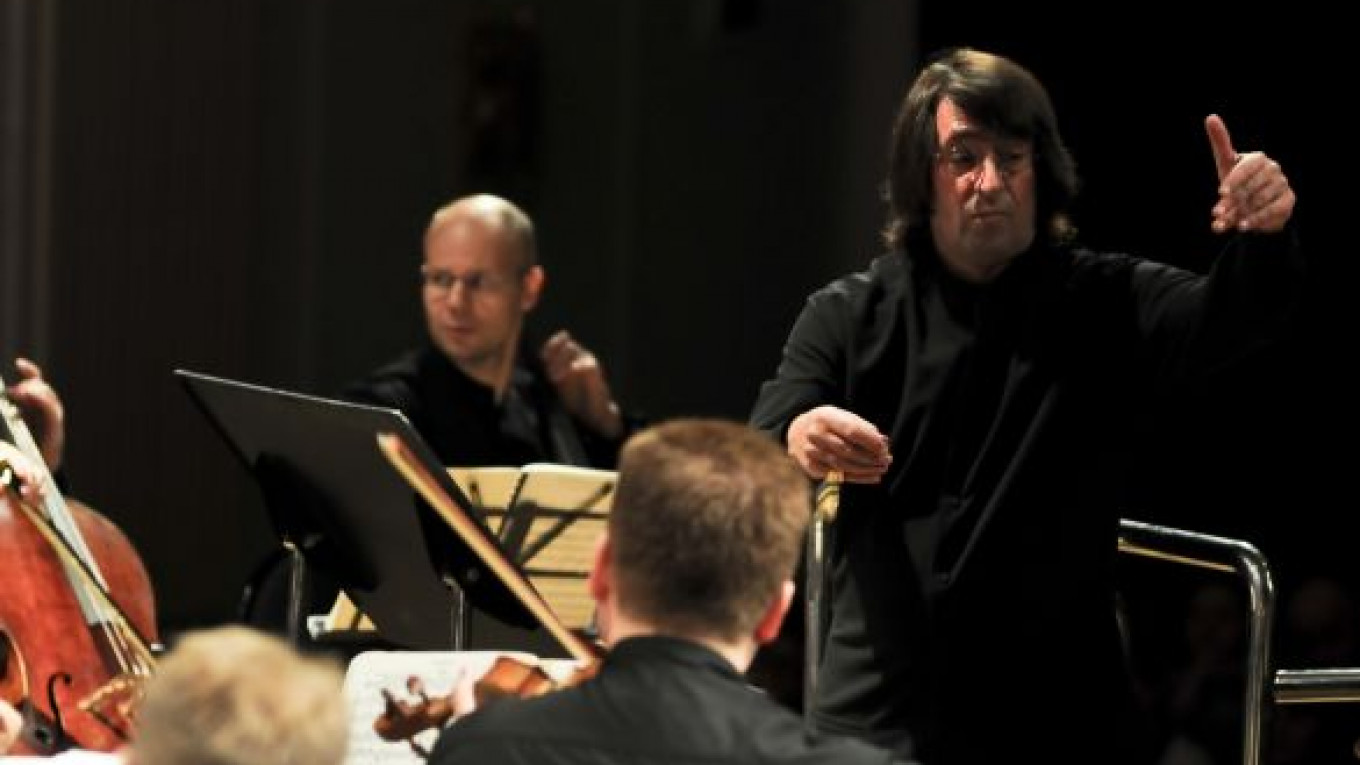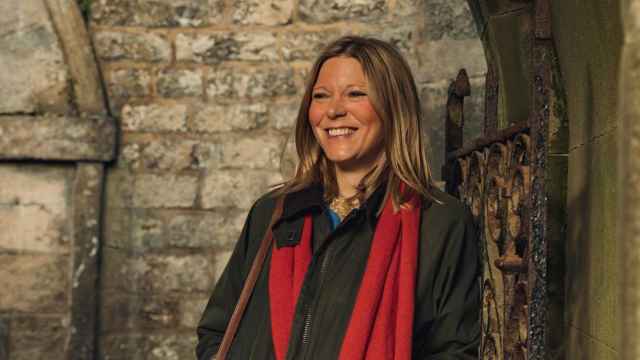KHABAROVSK — Violist and conductor Yury Bashmet is a man of many festivals, acting as artistic director or principal attraction, or both, of at least a dozen, including "December Nights" at Moscow's Pushkin Museum and festivals of music and the arts in such regional centers as Yaroslavl, Sochi and Kurgan, as well as abroad in Azerbaijan's resort of Gabala, on the Island of Elba off the coast of Tuscany and in the Belarussian capital of Minsk.
Last year, Bashmet expanded his festival agenda to include the Russian Far East, with the inauguration of the Khabarovsk International Music Festival. This year's second installment of the festival began on April 3 and ends on Friday, bringing to Khabarovsk Bashmet's own Moscow Soloists chamber orchestra and a number of noted instrumental soloists from Russia and abroad. Joining them has been the Khabarovsk-based Far Eastern Symphony Orchestra.
While Khabarovsk, despite its location some 6,000 kilometers by air from Moscow, is not at all starved for culture, the presence there of Bashmet and his musical entourage seemed, to all appearances, to be an event of very special importance. The three concerts I was able to attend were greeted by full houses and audiences both unpretentious — no overdressed local oligarch wives parading equally overdressed children down the aisles as seen at other concerts in the Russian hinterland — and superattentive.
The opening concert featured two difficult works for soloist and orchestra: Johannes Brahms' Violin Concerto (with Russian-born, Belgian-based violinist Tatyana Samuil) and Hector Berlioz "Harold in Italy" (with Bashmet portraying the hero of the piece on his viola). The local orchestra valiantly attacked both scores, but seemed at times unequal to the struggle.
Three nights later, the Moscow Soloists took to the stage with quite different results. Formed by Bashmet in 1992 from top-flights students and graduates of the Moscow Conservatory, the orchestra has long been held in high regard. And with it, Bashmet's leadership has usually proved more effective than with the much larger Novaya Rossia State Symphony Orchestra, which he has directed for the past decade. The program began with some delightful and quite varied pieces of modern origin by Russian Alfred Schnittke, Georgian Giya Kancheli and Italian Giovanni Sollima and concluded with an extraordinarily virtuoso performance of Pyotr Tchaikovsky's String Sextet, "Souvenir de Florence," as arranged for chamber orchestra.
In between came a day devoted to children, beginning with a competition presided over by Bashmet at one of the city's music schools, the major purpose of which — as well as of others to follow throughout Russia — was selecting players for an All-Russia Youth Orchestra, due to make its debut in November under Bashmet's baton in Sochi and Moscow. A concert for children followed later in the day, with a program that certainly contained the right ingredients — Benjamin Britten's "Young Person's Guide to the Orchestra" and Francis Poulenc's "History of Babar, the Little Elephant." But thanks to an unimaginative, leaden presentation, the music utterly failed to charm its young listeners.
The next day, members of the Moscow Soloists traveled 350 kilometers northward to play for an audience in the Khabarovsk region's second-largest city, Komsomolsk-on-Amur, leaving the visiting press behind to explore the sites of Khabarovsk.
And very worthwhile exploring it was. Like most Russian cities, Khabarovsk has been disfigured by unspeakably ugly and partly decaying Soviet-era apartment blocks and banal post-Soviet architecture. But the older part of the city, close to the spot where it was founded as a military outpost in 1858, boasts many a beautiful building from pre-revolutionary times, including an array of finely decorated red-brick buildings that seem somehow symbolic of the Russian Far East. There are excellent museums as well, among them a superbly arranged regional museum that combines natural history, a glimpse into the lives of the region's indigenous peoples and history of its Russian settlement and a museum-aquarium that houses more than 90 of the 125 varieties of fish found in the Amur River.
The mighty Amur — Russia's longest river, according to some calculations — is without much doubt Khabarovsk's principal glory, dramatically sweeping past the city as it turns northward toward the Sea of Okhotsk. Still covered with ice in early April, it offers numerous delights in warmer weather — swimming, fishing, hydrofoil trips to the easternmost city of China, Fuyuan, 65 kilometers upstream, and cruises to the villages of various indigenous peoples.
Next on Bashmet's agenda is a festival much closer to home, in the 1,000-year-old city of Yaroslavl, located 280 kilometers northeast of Moscow on the banks of the Volga River. Taking place between May 9 and 16, the festival promises high-powered music-making from a star-studded lineup of musicians.
For information about the 4th International Music Festival in Yaroslavl, see
A Message from The Moscow Times:
Dear readers,
We are facing unprecedented challenges. Russia's Prosecutor General's Office has designated The Moscow Times as an "undesirable" organization, criminalizing our work and putting our staff at risk of prosecution. This follows our earlier unjust labeling as a "foreign agent."
These actions are direct attempts to silence independent journalism in Russia. The authorities claim our work "discredits the decisions of the Russian leadership." We see things differently: we strive to provide accurate, unbiased reporting on Russia.
We, the journalists of The Moscow Times, refuse to be silenced. But to continue our work, we need your help.
Your support, no matter how small, makes a world of difference. If you can, please support us monthly starting from just $2. It's quick to set up, and every contribution makes a significant impact.
By supporting The Moscow Times, you're defending open, independent journalism in the face of repression. Thank you for standing with us.
Remind me later.






